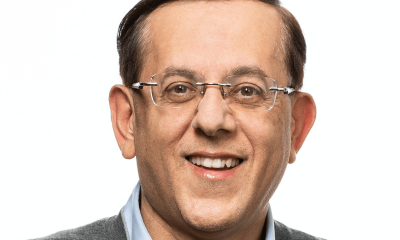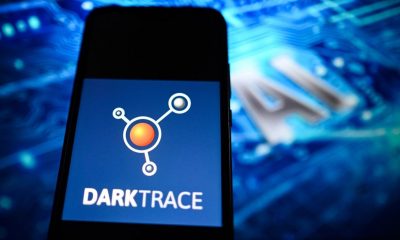Technology
Facebook removes 82 pages and accounts linked to Iran

Facebook has uncovered another influence campaign tied to Iran.
The company has removed 82 Pages, accounts, and groups for “coordinated inauthentic behavior” aimed at people in the United States and the UK. The accounts, which were on both Facebook and Instagram, were used to spread content on socially divisive issues, like race relations and immigration, according to Facebook.
The company was quick to point out that while the activity originated in Iran, they weren’t able to attribute it to the Iranian government. “It’s still early days and while we have found no ties to the Iranian government, we can’t say for sure who is responsible,” the company’s head of cybersecurity policy, Nathaniel Gleicher, wrote in a statement.

Examples of some of the content posted by the removed accounts.
The accounts and Pages Facebook removed had been active over the last year and, all together, had more than a million followers. The content they posted, which was aimed at people in the U.S. and the UK, included memes on “politically charged topics.”
This is the second time Facebook has removed accounts tied to an alleged Iranian influence campaign. The company removed 652 accounts and Pages in August. Gleicher said the latest takedowns had some ties to the previous accounts it had detected.

Examples of some of the content posted by the removed accounts.
Facebook also touted its actions as a win for the company’s election war rooms, dedicated spaces at Facebook’s offices where employees are specially trained to spot attempts to meddle in elections. Because of the war rooms, the company was able to address the accounts much more quickly, Gleicher said.
“Our threat intelligence team first detected this activity one week ago. Given the elections, we took action as soon as we’d completed our initial investigation and shared the information with US and UK government officials, US law enforcement, Congress, other technology companies and the Atlantic Council’s Digital Forensic Research Lab,” Gleicher wrote.

!function(f,b,e,v,n,t,s){if(f.fbq)return;n=f.fbq=function(){n.callMethod?
n.callMethod.apply(n,arguments):n.queue.push(arguments)};if(!f._fbq)f._fbq=n;
n.push=n;n.loaded=!0;n.version=’2.0′;n.queue=[];t=b.createElement(e);t.async=!0;
t.src=v;s=b.getElementsByTagName(e)[0];s.parentNode.insertBefore(t,s)}(window,
document,’script’,’https://connect.facebook.net/en_US/fbevents.js’);
fbq(‘init’, ‘1453039084979896’);
if (window.mashKit) {
mashKit.gdpr.trackerFactory(function() {
fbq(‘track’, “PageView”);
}).render();
}
-

 Business7 days ago
Business7 days agoXaira, an AI drug discovery startup, launches with a massive $1B, says it’s ‘ready’ to start developing drugs
-

 Entertainment6 days ago
Entertainment6 days agoSummer Movie Preview: From ‘Alien’ and ‘Furiosa’ to ‘Deadpool and Wolverine’
-

 Business6 days ago
Business6 days agoPetlibro’s new smart refrigerated wet food feeder is what your cat deserves
-

 Entertainment4 days ago
Entertainment4 days agoWhat’s on the far side of the moon? Not darkness.
-

 Business5 days ago
Business5 days agoHow Rubrik’s IPO paid off big for Greylock VC Asheem Chandna
-

 Business5 days ago
Business5 days agoThoma Bravo to take UK cybersecurity company Darktrace private in $5B deal
-

 Business4 days ago
Business4 days agoTikTok faces a ban in the US, Tesla profits drop and healthcare data leaks
-

 Business6 days ago
Business6 days agoZomato’s quick commerce unit Blinkit eclipses core food business in value, says Goldman Sachs






















